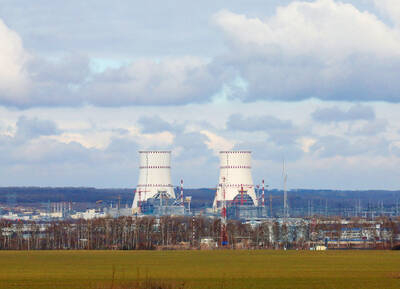US soldiers and airmen fighting in Iraq are to receive a new weapon in their arsenal: a pack of playing cards to help them identify ancient ruins before creating new ones.
The Pentagon's move, echoing its post-invasion production of a deck of cards depicting "Iraq's most wanted," is part of a belated Pentagon scheme to prevent further war damage to the country's 11,000 archeological sites.
More than four years after priceless antiquities housed in Iraq's National Museum were looted and much of the country's ancient heritage was despoiled, 40,000 packs of the playing cards will be dealt out to US troops -- roughly one deck for every four soldiers.
The cards are illustrated with pictures of rare artefacts or sites of special interest, in the hope that soldiers will avoid turning them into battlefields.
Each suit has a theme: diamonds for artefacts, spades for digs, hearts for "winning hearts and minds" and clubs for heritage preservation.
The cards also carry handy slogans. The five of clubs says: "Drive around, not over archeological sites." Another asks: "This site has survived 17 centuries. Will it and others survive you?"
In what may be seen as an optimistic initiative, troops are asked to consider taking up alternative firing positions if historical treasures are at risk. Likewise, air force pilots are urged to bomb sensitively.
In one infamous incident in 2003, a site at Nebuchadnezzar's ancient city of Babylon was used as a helicopter landing pad and a camp for 2,000 troops.
Last year Donny George, Iraq's most prominent archeologist, fled the country saying growing insecurity was making preservation work impossible.

Philippine President Ferdinand Marcos Jr has fired his national police chief, who gained attention for leading the separate arrests of former Philippine president Rodrigo Duterte on orders of the International Criminal Court and televangelist Apollo Carreon Quiboloy, who is on the FBI’s most-wanted list for alleged child sex trafficking. Philippine Executive Secretary Lucas Bersamin did not cite a reason for the removal of General Nicolas Torre as head of the 232,000-member national police force, a position he was appointed to by Marcos in May and which he would have held until 2027. He was replaced by another senior police general, Jose

STILL AFLOAT: Satellite images show that a Chinese ship damaged in a collision earlier this month was under repair on Hainan, but Beijing has not commented on the incident Australia, Canada and the Philippines on Wednesday deployed three warships and aircraft for drills against simulated aerial threats off a disputed South China Sea shoal where Chinese forces have used risky maneuvers to try to drive away Manila’s aircraft and ships. The Philippine military said the naval drills east of Scarborough Shoal (Huangyan Island, 黃岩島) were concluded safely, and it did not mention any encounter with China’s coast guard, navy or suspected militia ships, which have been closely guarding the uninhabited fishing atoll off northwestern Philippines for years. Chinese officials did not immediately issue any comment on the naval drills, but they

POWER CONFLICT: The US president threatened to deploy National Guards in Baltimore. US media reports said he is also planning to station troops in Chicago US President Donald Trump on Sunday threatened to deploy National Guard troops to yet another Democratic stronghold, the Maryland city of Baltimore, as he seeks to expand his crackdown on crime and immigration. The Republican’s latest online rant about an “out of control, crime-ridden” city comes as Democratic state leaders — including Maryland Governor Wes Moore — line up to berate Trump on a high-profile political stage. Trump this month deployed the National Guard to the streets of Washington, in a widely criticized show of force the president said amounts to a federal takeover of US capital policing. The Guard began carrying

Ukrainian drone attacks overnight on several Russian power and energy facilities forced capacity reduction at the Kursk Nuclear Power Plant and set a fuel export terminal in Ust-Luga on fire, Russian officials said yesterday. A drone attack on the Kursk nuclear plant, not far from the border with Ukraine, damaged an auxiliary transformer and led to 50 percent reduction in the operating capacity at unit three of the plant, the plant’s press service said. There were no injuries and a fire sparked by the attack was promptly extinguished, the plant said. Radiation levels at the site and in the surrounding